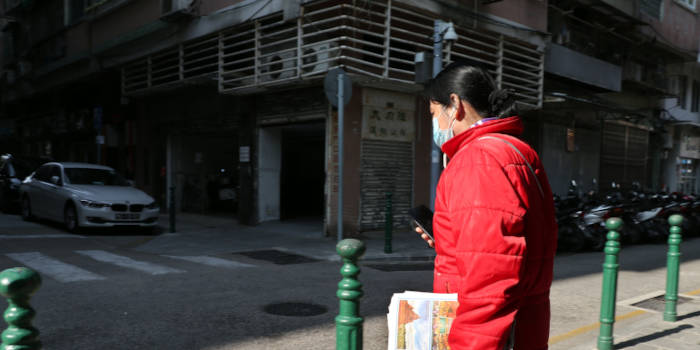Macau Reports 71.1% YOY Drop in GGR Taxes

Macau will collect an estimated $3.70 billion in taxes from casino gambling operations in 2020, or a 71.1% less than the originally expected amount.
Macau’s GGR Crashes in 2020
Dealing with the worst economic downturn in recent history, Macau’s government has reported that it expects to collect an estimated MOP29.46 billion ($3.70 billion) in taxes from the administrative region’s casinos in 2020, based on a budget revision.
Based on this revision, the government is expecting 71.1% less collected in tax amounts for 2020 than what its forecasts for the year were in November 2019, the document revealed, reported by GGRAsia.
The second revision is down by another 42% by what a previous revision in April estimated the city would collect in taxes, but a prolonged post-pandemic recovery and lack of travelers sapped casinos and deprived them from revenue.
The revision was approved by the Legislative Assembly on Wednesday, making it the official and final outlook for the special administrative region. To cope with the pandemic and lack of revenue, the government will be forced to dig deep into its pockets and shift MOP8.1 billion to cover expenses in December.
Collecting What Is Due
In the revised budget, Macau pointed out that it will collect an estimated MOP210 million in taxes from the city’s junket operators, or a 41.7% decrease from the government’s original forecast. Macau may consider shifting the current tax on casinos gross gaming revenue (GGR) to 39% from 35% presently, GGRAsia suggests, citing the numbers collected.
However, the publication has cautioned that the numbers of the taxes collected are not final, because there is a disparity between when the GGR tax is collected and when that is recorded and published by the government.
As of November 30, Macau’s gross gaming revenue for the year was at MOP52.62 billion or 80.5% lower than a year before.
No Room for Panic
As Macau’s has come under pressure to adapt and change, a rumor swirled that the People’s Bank of China (PBC) may be seeking to introduce the digital yuan, or e-yuan, as the only option for purchasing chips in Macau’s casinos.
The news, which circulated for a day before it was dismissed by Macau’s regulator and authorities, suggested that China will try to exert a tighter control over the money flow related to casinos in the city, a move that is obviously not going to take place.
Meanwhile, JP Morgan Securities (Asia Pacific) Ltd cautioned that should the e-yuan end up being introduced, Macau may lose its entire VIP segment, citing high-rollers’ reluctance to divulge their full identities to the Chinese government.
Macau is at crossroads, not only because the city has to caution the worst economic downturn in recent history, but because the pandemic served as a wake-up call for authorities to diversify their dependence on gaming revenue.
From the mass premium segment to tourism, to sports events, Macau is looking to resuscitate its economy in a way that doesn’t involve too much gaming revenue, and this will be one of its main objectives in 2021.
Mike made his mark on the industry at a young age as a consultant to companies that would grow to become regulators. Now he dedicates his weekdays to his new project a the lead editor of GamblingNews.com, aiming to educate the masses on the latest developments in the gambling circuit.












